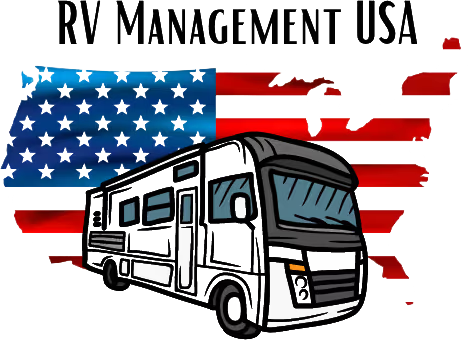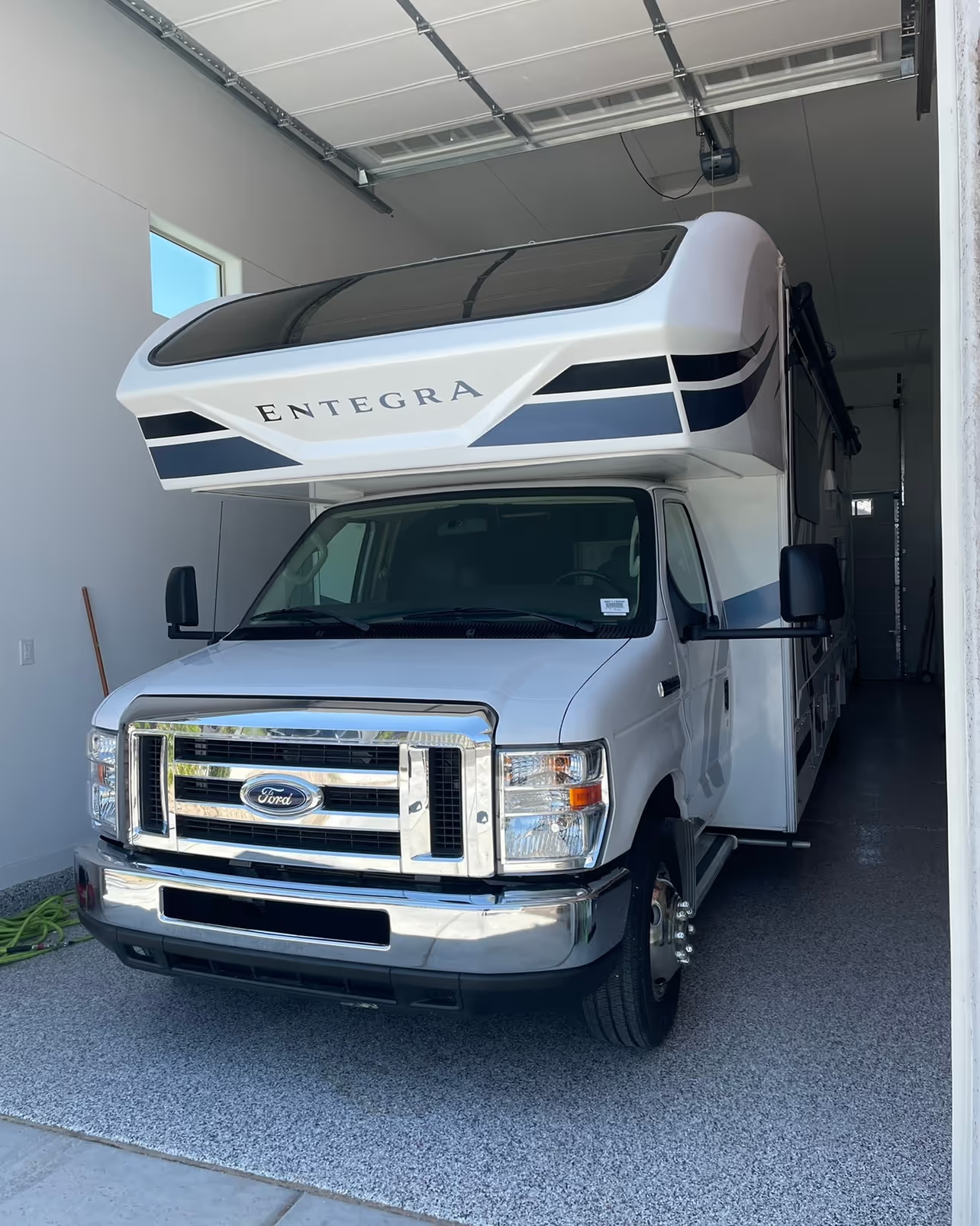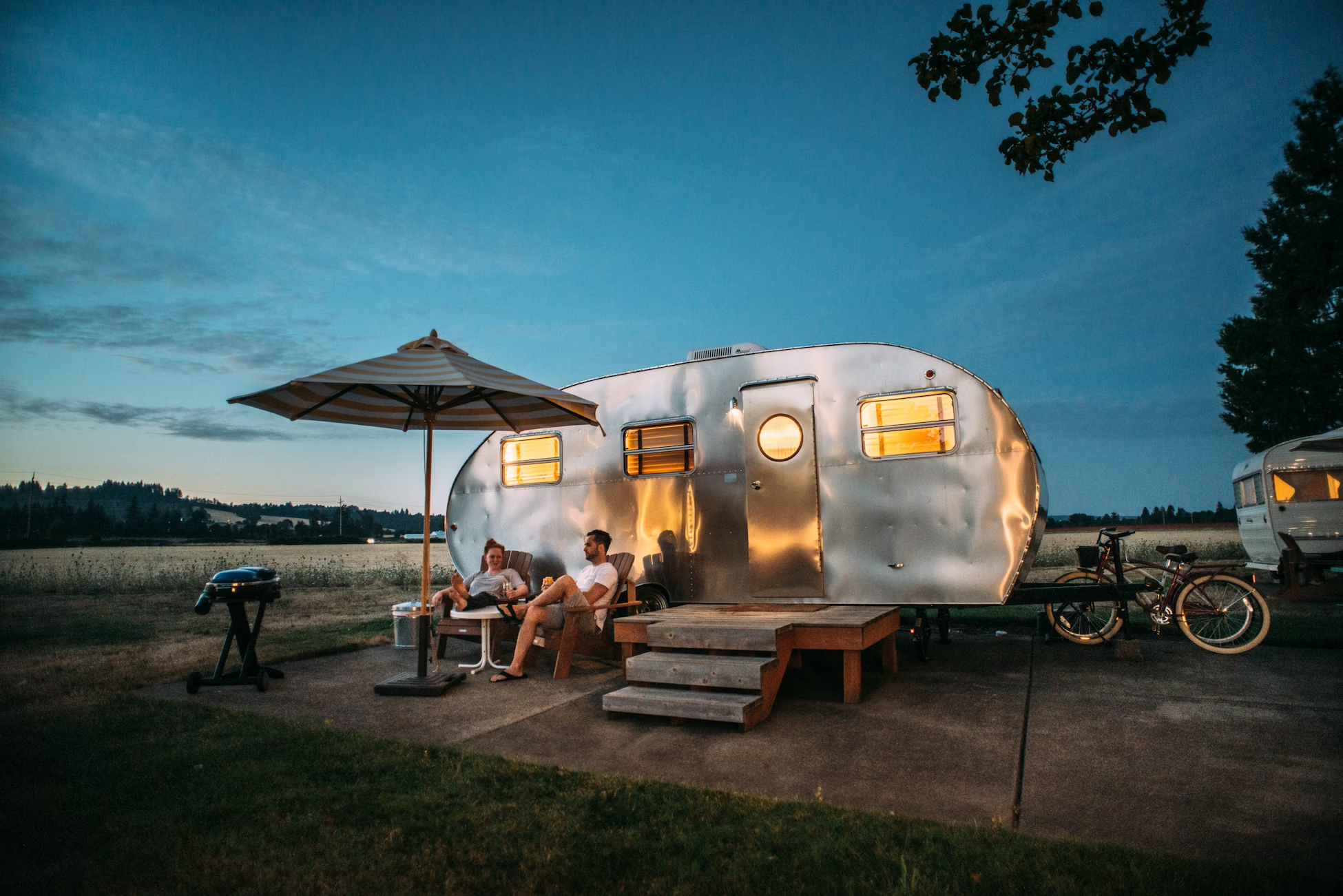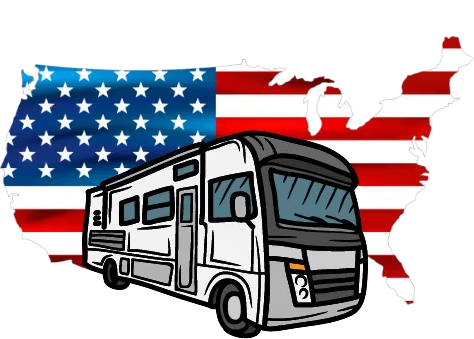If you’ve ever looked at your RV sitting in the driveway and thought, “I could probably make some money with this thing,” you’re not alone.
That’s exactly what I thought when I saw my Class C sitting unused for weeks after a summer trip. The thing was practically begging to pay for itself.
So I listed it online.
A few months—and more than a few mistakes—later, I learned there’s more than one way to rent out an RV. You can go at it alone… or you can hand it off to a professional management company.
Both have their perks. One gives you full control and a crash course in entrepreneurship. The other gives you peace of mind and time back in your day.
In this guide, I’ll walk you through the pros, cons, real-life experiences, and what you can expect—so you can choose the path that fits your lifestyle, schedule, and goals.
Table of Contents
- Overview: The Two Main RV Rental Paths
- What It’s Really Like to Self-Manage an RV
- Pros & Cons of Going DIY
- What a Rental Management Company Does
- Pros & Cons of Professional Management
- Time Commitment: How Much Work Are We Talking?
- Income Potential: DIY vs. Management
- Who Benefits Most from Each Model?
- Final Thoughts: Choosing the Right Fit
1. Overview: The Two Main RV Rental Paths

If you’re looking to make money with your RV, you’ve basically got two routes:
- Do-it-yourself (DIY) – You’re the manager, the cleaner, the guest greeter, and sometimes the emergency repair technician.
- Professional management – You hire a team (like us at RV Management USA) to take care of all the logistics while you collect the income.
Think of it like owning a rental property. You can either mow the lawn and unclog toilets yourself, or you can hire a property manager. There’s no right answer—just the right one for you.
2. What It’s Really Like to Self-Manage an RV
Let me be honest: renting out your RV yourself can be stressful—and it’s not exactly passive income.
When I started, I spent hours tweaking my listing photos, answering midnight questions from guests, and once, I even drove across town at 6 a.m. to fix a jammed slide-out before a pickup.
Here’s what managing your own RV actually involves:
- Building and updating listings on platforms like Outdoorsy or RVshare
- Quickly responding to booking inquiries and questions
- Vetting guests and coordinating check-ins
- Cleaning and restocking between rentals
- Troubleshooting on-the-go issues (like dead batteries or water heater confusion)
- Managing your calendar, pricing, and insurance coverage
Some owners love this hustle. I know folks who enjoy chatting with guests, showing them the ropes, and getting glowing reviews because of their personal touch.
But others find it draining, especially when they’re juggling a full-time job or have kids at home. I’ve been there—trying to prep the RV with one hand while holding a baby monitor in the other.
3. Pros & Cons of Going DIY
Pros:
- You keep 100% of the rental income
- Full control over bookings, pricing, and who rents your RV
- Great hands-on learning if you're considering scaling to more units
- More flexibility to use your RV when you want
Cons:
- Very Time-consuming (expect 10–25 hours/month—more during peak season)
- You're the on-call manager—from flat tires to guest lockouts in the middle of the night
- Steep learning curve on pricing, policies, insurance, and platforms
- Easy to get overwhelmed, especially if life throws curveballs
A friend of mine managed his RV rentals perfectly—until his job got more demanding and his weekends disappeared. Suddenly, he was canceling bookings and refunding guests because he just couldn’t keep up.
4. What a Rental Management Company Does

This is where the plug-and-play option comes in. Companies like RV Management USA handle everything—turning your RV into a true income-generating asset without the day-to-day headaches.
Here's what that looks like:
- Professional listings and photography that convert browsers into bookers
- Dynamic pricing based on demand, seasonality, and location
- Guest communication, screening, and 24/7 support
- Handoffs, walkthroughs, cleanings, and restocks
- Maintenance coordination and minor repairs
- Platform compliance, insurance guidance, and damage claims
I had one client tell me it felt like switching from running a small hotel… to owning stock in one. You’re still invested—but someone else is doing the work.
5. Pros & Cons of Professional Management
Pros:
- Truly passive income—you don’t have to lift a finger
- Higher revenue thanks to optimized pricing and professional systems
- Better guest experiences, which lead to better reviews and more bookings
- Zero stress over logistics, maintenance, or late-night calls
- Great for busy professionals, long-distance owners, or portfolio investors
Cons:
- Management fees (typically 50% of your rental revenue)
- Less personal control—though a good manager will keep you in the loop
- Some firms limit personal use (we don’t—we tailor access around your schedule)
If your time is already stretched thin, this can be a life-saver. I’ve seen owners go from stressed-out weekend warriors to hands-off investors with growing fleets.
6. Time Commitment: How Much Work Are We Talking?
Here’s a quick side-by-side of what you’re taking on:

- DIY: 10–25 hours/month
- Managed: Less than 1 hour/month
Ask yourself: Do I want a side hustle, or do I want a side income?
7. Income Potential: DIY vs. Management
In theory, you might earn a bit more by doing it all yourself. But here’s what we’ve seen play out in the real world:
- DIY owners often underprice their rigs
- They miss bookings due to delayed responses
- They struggle with consistency during peak season
- They overlook small issues that lead to bad reviews or refund requests
Meanwhile, professionally managed RVs tend to stay booked longer, charge more per night, and avoid guest complaints—even after management fees are taken out.
I once met a couple who switched to management after a season of DIY. They made more money the next year, even with a 50% fee—because their RV was better marketed and always guest-ready.
8. Who Benefits Most from Each Model?
DIY is a great fit if you:
- Have plenty of spare time
- Live near where your RV is stored
- Want to learn the business hands-on
- Enjoy guest interaction and logistics
Professional management is ideal if you:
- Have a full-time job or limited free time
- Live far from your RV
- Prefer passive, consistent income
- Are thinking of growing a rental portfolio
One of our clients owns three RVs, lives in another state, and hasn’t touched a booking calendar in two years. He’s building wealth while we handle the details.
9. Final Thoughts: Choosing the Right Fit
At the end of the day, this decision comes down to your goals and your lifestyle.
- If you want control, flexibility, and the thrill of learning the ropes, go DIY.
- If you want consistency, scalability, and freedom from daily stress, professional management might be the best money you never spend.
Curious what your RV could earn with professional management?
Schedule a free income analysis with our team. We’ll run the numbers based on your RV, your location, and your rental goals—so you can make the smartest decision for your future.
— The RVM Team













